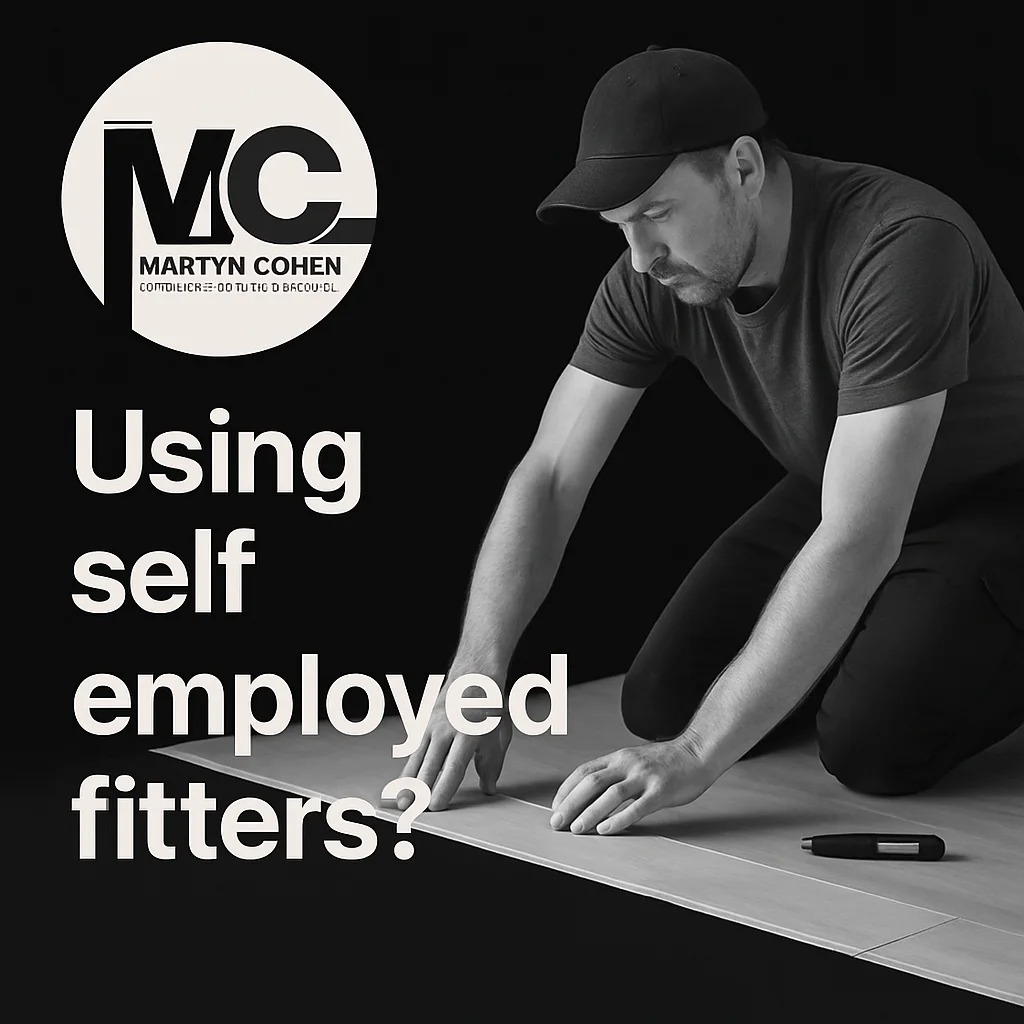If you're a retailer working with self-employed or third party flooring installers, you know the landscape is more complex than ever. With new legal rulings, evolving customer expectations, and increased scrutiny from HMRC, it's vital to get your fitting strategy right. Having overseen more than 1,300 self-employed fitters, I've seen first-hand what works - and what can trip up even the most established retailers.
Why Getting Your Fitting Model Right Matters
The way you structure your relationships with installers has a direct impact on your business's legal compliance, customer satisfaction, and bottom line. With the right approach, you can protect your business, deliver a great customer experience, and avoid costly disputes or penalties.
Setting Up the Relationship: Contracts and Clarity
One of the most common pitfalls is unclear or inconsistent documentation. To avoid confusion and legal risk:
Act as an agent, not an employer. Make it clear in all paperwork and customer communications that you arrange fitting as an agent for the customer, not as the provider of the fitting service.
Direct payments. The contract for fitting should be between the customer and the installer, with payment made directly to the installer.
Avoid misleading language. Don't refer to "our fitters" or "our fitting service." Instead, explain that you thoroughly vet installers and arrange fitting on the customer's behalf.
Tip: Regularly review your sales scripts, order forms, and marketing materials. If you're unsure, MC Growth Consultancy can audit your documentation and processes to ensure you're protected.
Worker Status and Employment Rights: Lessons from the Uber Ruling
The Supreme Court's Uber decision was a game-changer. It's not just what's written in the contract that matters, but the reality of the working relationship. If you set rates, control schedules, or restrict installers from working elsewhere, you risk them being classed as "workers" rather than self-employed. This could mean liability for minimum wage, holiday pay, and even pensions.
Best Practices:
- Allow installers to accept or reject work and set their own schedules.
- Don't dictate terms beyond essential service standards.
- Make sure substitution clauses are real and workable.
Action: MC Growth Consultancy can review your agreements and working practices to help you avoid hidden risks and future claims.
VAT, Tax, and the Construction Industry Scheme (CIS)
Tax compliance is a growing focus for HMRC, especially for businesses using subcontractors. Key points to remember:
VAT registration: Self-employed installers must register for VAT if their turnover exceeds the threshold. If you pay installers directly or arrange both supply and fitting, you could be liable for VAT on the whole transaction.
Construction Industry Scheme (CIS): For certain types of flooring (not carpet), the Construction Industry Scheme may apply - especially if fitting is part of a larger construction project. CIS is HMRC's system for handling payments to subcontractors in the construction industry, requiring contractors to make deductions from payments and pass them to HMRC.
Keep records: Clear, accurate records of who is paid, by whom, and for what are essential.
Action: Unsure about your VAT or Construction Industry Scheme responsibilities? MC Growth Consultancy can map your supply chain and clarify your obligations.
Customer Communication: Transparency Builds Trust
Customers need to understand that installers are independent businesses, not your employees. This should be explained at the point of sale, in order paperwork, and in all marketing materials. Transparency reduces complaints and protects you from misrepresentation claims.
Checklist:
- Clearly state in scripts and paperwork that you act as agent, not provider.
- Ensure customers sign documentation confirming their understanding.
- Make sure your complaints process directs fitting issues to the installer, with your business as mediator if needed.
Action: MC Growth Consultancy can provide tailored training and scripts to help your team communicate clearly and confidently.
Quality Assurance and Handling Complaints
Your business's reputation depends on the quality of the installers' work. Set clear service standards, vet your installer network, and have robust processes for managing complaints.
- Require installers to address issues promptly.
- Log all complaints and outcomes.
- Recover costs from installers where appropriate, as set out in your agreements.
Action: Let MC Growth Consultancy review your quality assurance and complaints processes to ensure they are fair, effective, and legally robust.
Why Work with MC Growth Consultancy?
With extensive, hands-on experience managing over 1,300 self-employed fitters, I offer unique insight into the practical and legal challenges of third party installer models. MC Growth Consultancy can:
- Audit your current fitting strategy and documentation
- Advise on compliance with employment law, VAT, and CIS
- Develop staff training and customer communication tools
- Help you build a resilient, scalable installer network
Latest Update: United Carpets v HMRC Case Analysis
For the latest developments in HMRC compliance following the landmark United Carpets tribunal ruling, read our detailed case analysis: Is Your Flooring Business Really HMRC Compliant? What the United Carpets Case Means for You.
Need Help with Installer Sourcing?
Struggling to find qualified flooring installers? Our comprehensive installer sourcing services help you build a reliable network of skilled contractors.
View Installer Sourcing PricingReady to future-proof your fitting strategy? Contact MC Growth Consultancy today for a confidential review and bespoke advice tailored to your business.
Let's ensure your retail business is compliant, customer-focused, and set up for sustainable growth.
Ready to Optimise Your Installer Relationships?
Get expert guidance on compliance, documentation, and best practices for working with third-party installers.
Contact MC Growth Consultancy
